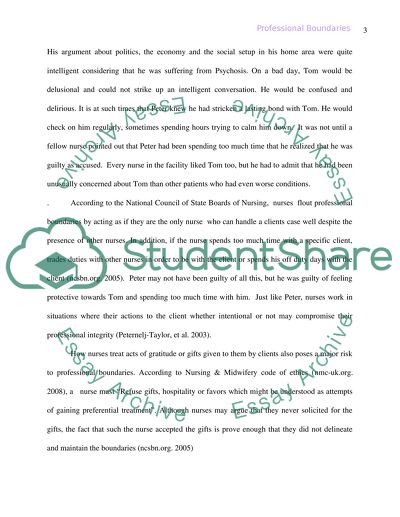Cite this document
(“Professional Boundaries Essay Example | Topics and Well Written Essays - 2000 words”, n.d.)
Professional Boundaries Essay Example | Topics and Well Written Essays - 2000 words. Retrieved from https://studentshare.org/health-sciences-medicine/1521401-professional-boundaries
Professional Boundaries Essay Example | Topics and Well Written Essays - 2000 words. Retrieved from https://studentshare.org/health-sciences-medicine/1521401-professional-boundaries
(Professional Boundaries Essay Example | Topics and Well Written Essays - 2000 Words)
Professional Boundaries Essay Example | Topics and Well Written Essays - 2000 Words. https://studentshare.org/health-sciences-medicine/1521401-professional-boundaries.
Professional Boundaries Essay Example | Topics and Well Written Essays - 2000 Words. https://studentshare.org/health-sciences-medicine/1521401-professional-boundaries.
“Professional Boundaries Essay Example | Topics and Well Written Essays - 2000 Words”, n.d. https://studentshare.org/health-sciences-medicine/1521401-professional-boundaries.


